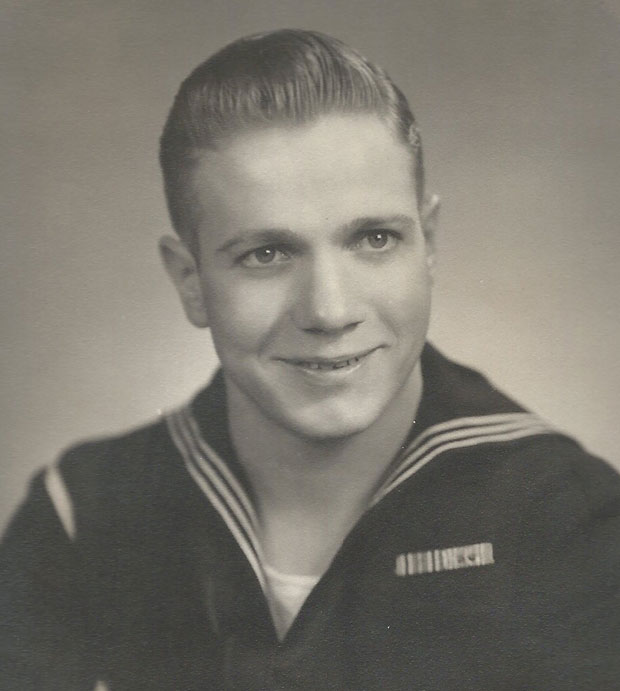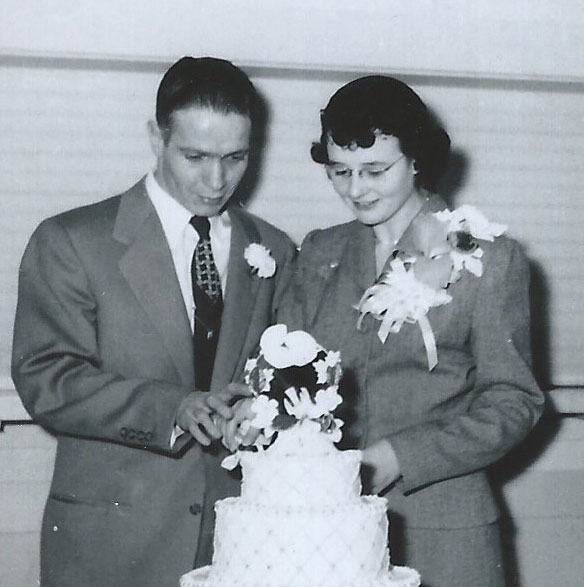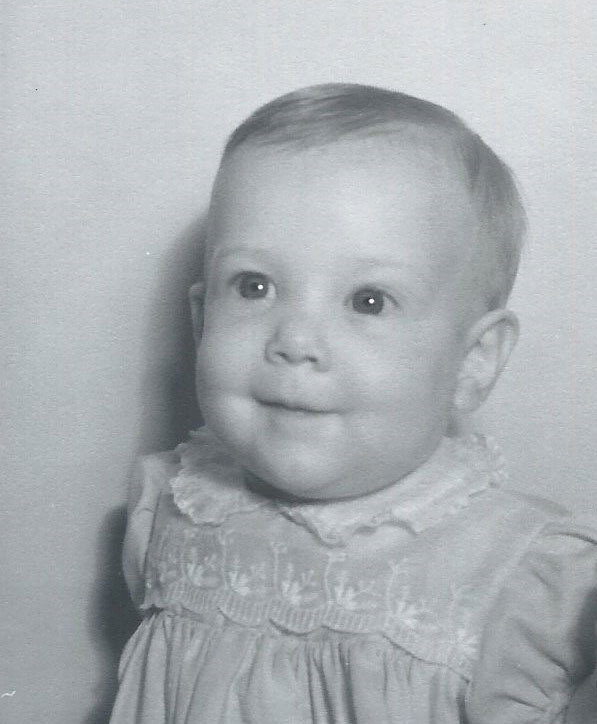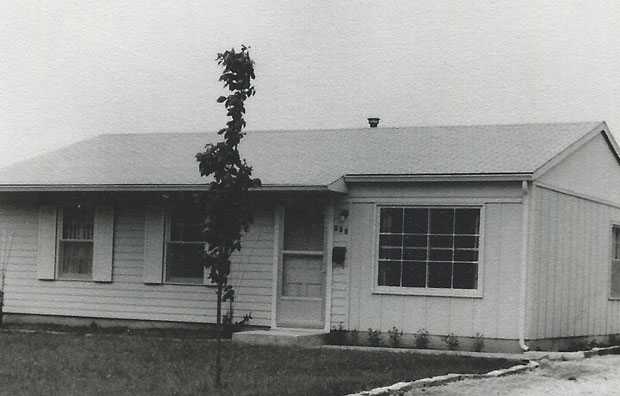My parents grew up poor, my mother in a small town and my father in a small city in Iowa.
In 1944, Daddy lied about his age and went to war.

I don’t know much about the intervening years, but obviously Daddy met Mommy, because they got married in 1953.

I was born. (I don’t feel obliged to tell you the year.)
 Shortly thereafter, my parents bought a small tract house on the GI Bill. We entered the (lower) middle class.
Shortly thereafter, my parents bought a small tract house on the GI Bill. We entered the (lower) middle class.
The GI Bill was intended to provide no-down-payment, low-interest mortgages, along with tuition and unemployment benefits, to all veterans of World War II.
In practice, only white veterans had access.
In 1966, my father died. The loss of income would have sent my mother and me into poverty, but for two things:
- We had the house. The mortgage payment was less than the rent on a two-bedroom apartment. Because we had three bedrooms, my mother’s parents could move in with us to share expenses. They stayed until I graduated from high school.
- We got Social Security survivor payments — another benefit that was technically available to all but that in practice had excluded many African Americans. (The linked article argues that the exclusion was not motivated by racism. For our purposes, it doesn’t matter. I got benefits that many little black girls whose fathers died did not get.)
Because we were not poor, I finished high school. I finished college. I even got a master’s degree.
I always worked, but I never had to quit school to support my family. Social Security continued to pay part of my expenses until I turned 23.
Years later, when my mother died, I received the proceeds from the sale of that three-bedroom tract house in Iowa. The mortgage had long been paid off.
In the Bronx, where I lived at the time, the money would barely have made a down payment! But I needed it to pay expenses. A health issue had kept me out of work for several months.
Once again, the house my parents bought on GI Bill kept me out of poverty.
I work hard. My parents worked hard. But I wouldn’t be as well off as I am today if it were not for benefits that were available to white people and not to people of color.
That’s my story of white privilege. What’s yours?


This is really lovely, Jan. Thank you for sharing. And thank you for reflecting on your own privilege.
Thank YOU, Pam, for reading and commenting.
At the beginning of the year my daughter was joking that her boyfriend had gotten out a little of shape and I suggested he start jogging around the block a few times. There was a pause and Nola said, Mom, Ray can’t go jogging in his neighborhood. Truly puzzled I asked, why not? And she said, think about it, a black man running through the streets? Not a good idea. I sputtered a little, thinking this was a bit of an exaggeration. A few weeks later Ahmaud Armery was hunted down and murdered.
Ugh, how can I edit my post? Just saw I made a typo, Ahmaud Arbery, not Armery.
Thanks, Daniella. It seems black people have long known what you and I never had to think about. Thanks for sharing! I think you’ve just done what you can to correct–another post.
Great story, Jan! Your comment back to Daniella really sums it up — I can run in my neighborhood, and I can go a little over the speed limit, I can do my job without getting arrested, I can ask someone to put a leash on their dog.
My first memory of something akin to white privilege in my own life was 2nd grade. Mom was my Brownie leader, and she told me I’d be giving my uniform to a member of the troop, and she’d get me a new one. Before I could respond, another adult said “Sorry, Laurie, but that little has to steal your uniform or she’ll never get one.” Mom saw my puzzled look, and responded, through clenched teeth “that little girl is a human being with a need, and we have the ability to help her, and so we will. Making it about the color of her skin is your problem, not hers, and I don’t ever want to hear you use that word in front of my daughter again!” I felt the privilege of having a uniform to give, and a Mom who didn’t judge others for ridiculous reasons like skin color. The memory stuck, as does the memory of that little girl’s face the first day she came to a meeting in her new uniform.
What a lovely story, Laurie! Thank you for sharing. Your mom gave you a head start on this journey of awareness.